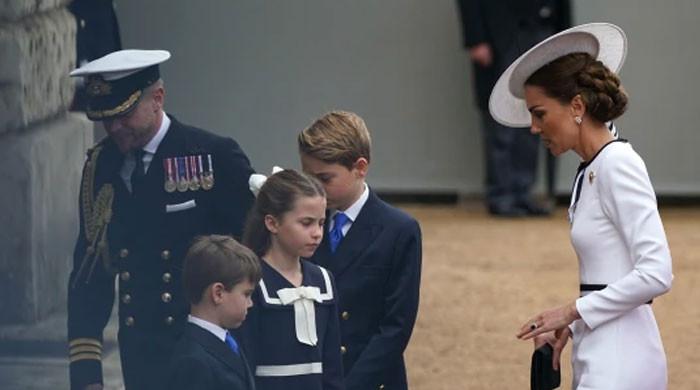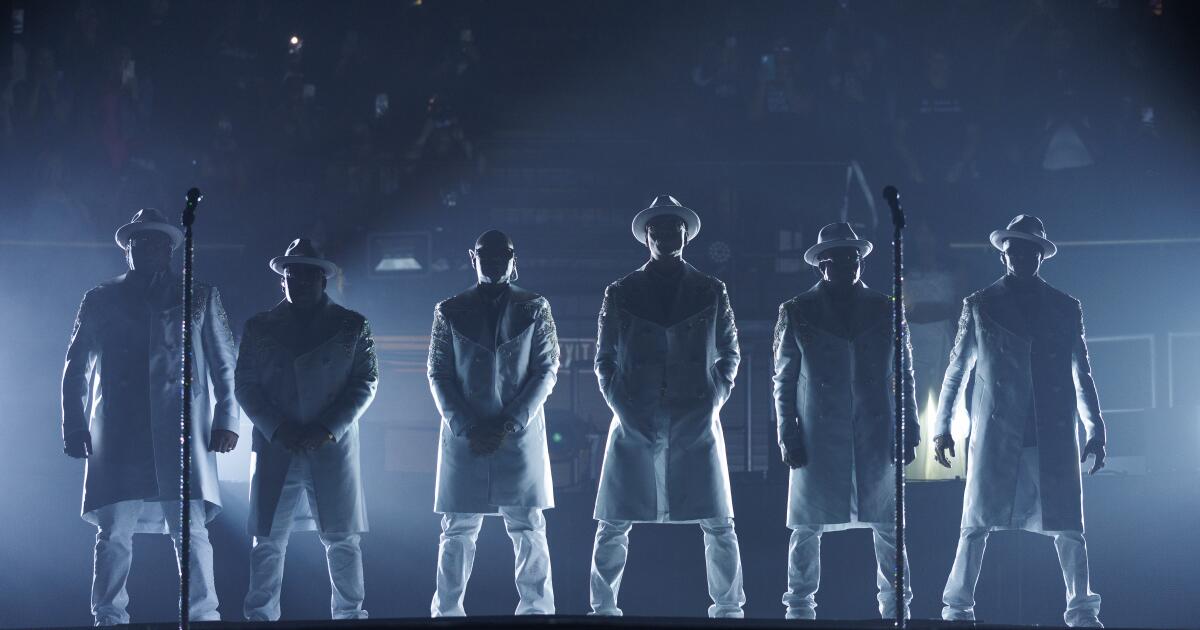Playing John Blackthorne in “Shōgun” required a measured level of complexity from Cosmo Jarvis. The character, who was loosely based on the English navigator William Adams in James Clavell's 1975 novel, is equal parts ruthless, manipulative, empathetic and curious, a complicated collision of traits that often puts him at odds with those around him. . Jarvis landed the role after several taped auditions several years ago. He was drawn to creators Rachel Kondo and Justin Marks' storytelling, as well as the immersive setting of 1600s Japan.
“It was about embracing that element of historical fiction but also taking into account historical fact as an important influence,” Jarvis says, speaking in April before beginning production on Ray Mendoza and Alex Garland's “Warfare.” “James Clavell obviously did the research for him, but he had to embellish it and turn it into an entertaining story to make it worth someone sitting down and reading thousands of pages. But it definitely has its roots in real history.”
Before filming in Vancouver, Jarvis had several months to prepare, a process that involved learning the basics of Japanese along with maritime and cannon protocols. Because the cast spanned two languages, the scripts came in both Japanese and English. But Jarvis didn't want to get too bogged down in understanding what the Japanese characters were saying, especially in the early episodes when Blackthorne is new to the language.
“Sometimes it was better not to read it,” Jarvis says. “There was no point knowing things that would end up being a hindrance to the scene. And it was a challenge. There were times when Blackthorne knew information, but there was no reasoning as to how he knew it. I had to bite the bullet and say, 'Well, I guess he knows now.' “There was a lot to discover as we went along.”
While many of the Japanese actors were subjected to rehearsals detailing traditional protocols and movements, Jarvis was able to embrace his character's fish-out-of-water nature. He says he balanced which aspects of the protocol to learn as Blackthorne slowly absorbed it and which aspects to ignore. He helped the 11-month production unfold “more or less chronologically,” with the episodes filmed in order. “The most helpful thing was the constant flow of scripts,” he recalls. “It meant there was always something to study and prepare for when it finally came time to start working on that section.”
Jarvis thought a lot about Blackthorne over the course of the year he spent with him. He acknowledges that it is “very difficult to reduce an entire philosophy and culture of a sovereign nation with a rich history to a single digestible thing that a foreigner can accept or obtain one day.” For the actor, that was the most difficult part of the job. Over the course of 10 episodes, Blackthorne changes and evolves, but Jarvis didn't want to lose sight of the fact that the character had to be grounded in reality. He found that foundation in the final episode, where Blackthorne offers to sacrifice his life to save a village.
Cosmo Jarvis improvised many of his character's curse words and insults.
(Katie Yu/FX)
“There are definitely things about cultures that can have a big impact, but the fact that you dress this Englishman in Japanese clothes and teach him to bow and teach him not to talk all the time, I don't understand it. “We know if that necessarily counts for assimilation,” Jarvis says. “He is still him. But ultimately what he experiences in the end that signifies his change is the first honest, agenda-free act he's been involved in since his arrival, and probably since. He does something selfless and I think that is the most important change that he goes through.”
One of the most challenging moments came in episode 9, where Anna Sawai's Mariko prepares to commit seppuku. In the novel, another character serves as Mariko's second, but the series upped the emotional stakes by having Blackthorne intervene. The actor had difficulty justifying the character's decision and wanted to make sure it was plausible for Blackthorne to offer the finishing service. Mariko after cutting herself. At the end, on the day of filming, Jarvis improvised the line: “Hell is not a place I haven't already known.”
“The scripts were very well formed, but some of Blackthorne's lines came out as something that was just tried,” he says. “Justin is very collaborative. The story beats were there, but there were details or logistical things that could be expanded upon and that was one of those moments. The line just made sense. Why was Blackthorne doing this? He felt so leave [Mariko] Learn the reasoning behind this. … You spend enough time as a person and you start to think that way.”
Jarvis, who also improvised many of Blackthorne's curse words and insults, ultimately enjoyed spending time with his character, despite his many complications. “I liked how he carried himself and how people responded when he walked,” notes the actor. “I thought of it as giving up on myself during filming.”
“Shōgun” marks the largest production in which Jarvis, previously best known for films such as “Persuasion” and “Lady Macbeth,” has been involved. He was amazed by the impressive, grandiose sets, some of which were built entirely on locations in Canada, and says the technical skill of such low-level craftsmanship propelled him to perform even better.
“The team was not only very technically competent but also had an amazing work ethic,” he says. “What they were able to manifest was the stuff of fantasy. It was a wonderful catalyst to be encouraged to live up to their expectations and try to create someone worthy of living in the world they had built.”












